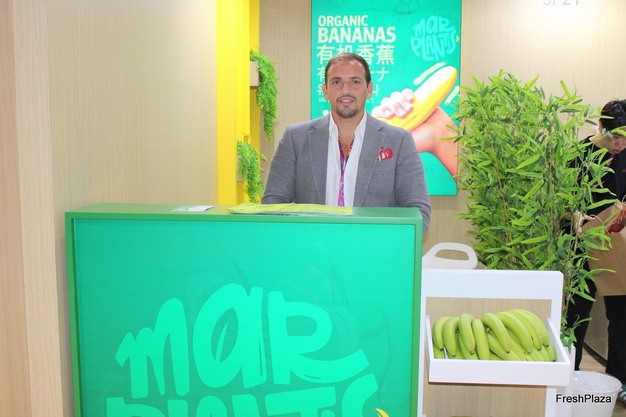Ecuadorian organic bananas are starting to gain ground in the Asian market, supported by recent free trade agreements that enable them to compete more effectively with other exporting nations. At the moment, all of Ecuador's organic banana exports go to Europe and North America, but Asia is expected to become a key player in the near and medium term. The shift presents logistical challenges, but the growth potential is evident in a market where consumers increasingly seek healthy, natural, and sustainable products.
According to Galo Molina, business director of Marplantis, this is a crucial year: "We are only in our first year of exports to China, but we see a lot of potential." The opening of Asia is a response to the conclusion of trade agreements with China and South Korea, which will lower the high tariffs that previously hampered the competitiveness of Ecuadorian organic bananas. "Now we are going to compete on an equal footing, and this will open many doors for us," he stressed.
 © Diana Sajami | FreshPlaza.com
© Diana Sajami | FreshPlaza.com
Until now, Mexico and Peru have had the most advanced access to markets like Japan and Korea, thanks to their tariff preferences. This helped them solidify trade relations with Asian buyers, while Ecuador faced higher costs. "They're a bit ahead because they already had an edge in those markets, but with the new treaties, Ecuador will be able to position itself too," Molina stated.
Currently, the company allocates its production equally: 50% to Europe and 50% to North America. However, expectations are clear: "I am sure that Asia will soon take a good percentage of this market," says Molina, who is convinced that geographical diversification will be crucial to withstand the fluctuations of international demand.
One of the company's biggest challenges is the long travel times to Asian destinations. Unlike conventional bananas, organic fruit isn't treated with chemicals after harvest, which cuts its shelf life and raises the risk of spoilage during long trips. "Organic fruit and conventional fruit are entirely different," Molina says. Still, recent improvements in logistics and the emergence of more flexible services allow for safer shipping.
Rising interest in healthy eating is fueling these projections. While Europe and the U.S. continue to lead in organic food consumption, China and other Asian markets are showing increased demand for pesticide-free fruit. This shift in preferences, especially among younger consumers, presents a major opportunity for Ecuadorian exporters.
In its third appearance at Asia Fruit Logistica, the company emphasizes the importance of business meetings to build relationships with new buyers and tailor to the preferences of Asian consumers. "The Chinese are very interested in flavor and presentation," Molina comments, highlighting the significance of sweetness and aesthetics in choosing fruit.
 © Valeria Ten | FreshPlaza.com For more information:
© Valeria Ten | FreshPlaza.com For more information:
Galo Molina
Marplantis
Ecuador
Tel: +593 9 94796100
Email: [email protected]
www.marplantis.com
